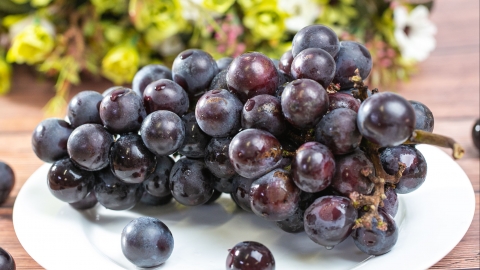Is it safe to eat the skin of Kyoho grapes?
Generally speaking, the skin of Kyoho grapes is edible. The detailed explanation is as follows:

Kyoho grape skin contains abundant nutrients, such as dietary fiber, resveratrol, and anthocyanins. Dietary fiber helps promote intestinal motility and prevent constipation. Resveratrol has antioxidant, anti-inflammatory properties and can help prevent cardiovascular diseases. Anthocyanins are natural antioxidants that can remove free radicals in the body and offer certain benefits to eye health and skin care.
In the grape cultivation process, if pesticides are used according to regulations and the grapes are thoroughly washed, pesticide residues on the surface of Kyoho grape skins are typically within safe limits and will not harm human health. Moreover, grape skins themselves do not contain any naturally occurring toxins harmful to humans, so they can be safely consumed. Additionally, Kyoho grape skins have a slightly sour and astringent taste, which contrasts with the sweetness and juiciness of the flesh, adding a rich texture to the eating experience.
It is recommended to consume them in moderation, as excessive consumption may burden the gastrointestinal tract and lead to indigestion. Grapes must also be thoroughly washed before consumption to ensure hygiene and safety. Furthermore, individuals allergic to grapes or grape skins should avoid consuming them to prevent allergic reactions.




